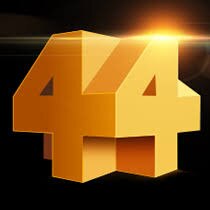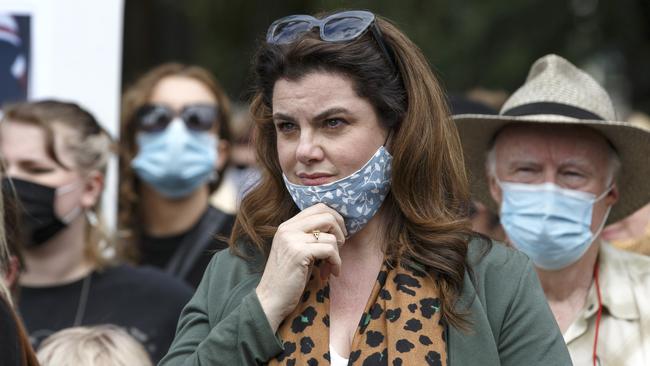ABC’s reputation under scrutiny like never before
ABC journalists say Four Corners seems exempt from editorial oversights, with lines of journalism and activism too often blurred.
One of the ABC’s best-known on-air presenters is unusually blunt about the bad publicity the public broadcaster’s flagship current affairs program has attracted in recent months. “It’s incredibly bad for all of us,” the journalist says. “They’re embarrassing the whole organisation.”
It’s a point of view widely held within the national broadcaster, whether those at the helm of Four Corners or in the upper echelons of management wish to admit it or not.
Of the dozens of ABC journalists The Australian’s reporters have spoken to in recent weeks, two central points of irritation are recurring themes — annoyance that 4C, as it’s known internally, appears exempt from the editorial oversights and management controls demanded of other news programs at the organisation; and deep concern that the lines of journalism and activism have, in recent times, too often been blurred on a program long considered the gold standard for current affairs on television.

On Monday, the ABC will air its Four Corners episode about a QAnon follower and his alleged links with Scott Morrison. This month, it was revealed ABC managing director David Anderson ruled the program “not ready” for publication, pushing back its screening date so more work could be done.
A lot is at stake. If the program is seen to unfairly slur the Prime Minister and his family — as some inside his office fear — the ABC’s relationship with the federal government could be beyond repair. Wounds from the defamation matter involving former attorney-general Christian Porter and the ABC, and star reporter Louise Milligan, are unlikely to heal for some time, and if Four Corners is perceived to have over-reached with the QAnon story, the fall out will be seismic.
If the program is as measured and fair as ABC bosses have promised, Four Corners journalists, especially Milligan and its executive producer Sally Neighbour, will feel vindicated.
Whatever the outcome, the perception within the ABC of Four Corners operating as a “journalism vigilante unit” — a label used by Nine newspapers last week — is not limited to a handful of jealous journos in the main offices in Sydney’s Ultimo and Melbourne’s Southbank.

After this newspaper’s provocative editorial last Tuesday took aim at some ABC journalists who “decry any form of scrutiny”, there was a sense among large numbers of ABC staff who are not signed-up members of the Neighbour-Milligan fan club that the piece had articulated a popular internal view, The Australian was told by a respected ABC veteran.
Another prominent ABC journalist told The Australian on Sunday: “I think some people here believe in their hype and think they’re beyond criticism. It’s activism dressed up as journalism. And the proponents think they’re saints for producing it. That Four Corners-Porter story was a joke, so we should be roasted for it.”
There was also support from federal Liberal MPs, who feel the program unfairly targeted them in the Inside the Canberra Bubble episode that aired in November while turning a blind eye to transgressions by politicians on the other side of the chamber.
A Coalition cabinet minster said Four Corners “journalists do what they want and they seem powerless to put the brakes on at all. They are in receipt of a lot of stuff with the Labor Party but … haven’t touched it.”
No politician would speak on the record.
Like most big organisations, the ABC is highly factionalised, and the biggest resentments boil down to perceptions of special treatment (and special budgets) for big-name programs that don’t necessarily drive the best value: Q+A, Insiders and Four Corners.
Around every corner at the ABC there’s a scrappy little unit of editorial staff producing a daily or hourly contribution with a minuscule proportion of the budgets of the big-deal programs. Those small teams are under immense pressure to meet strict targets for diversity and representation.
Across much of the ABC, the perception is those requirements don’t apply at Four Corners.
Two weeks ago in the ABC’s Canberra political bureau, political editor Andrew Probyn and bureau chief Louise Yaxley were deep in discussion about something mysterious.
Reports would later emerge that Probyn was refusing to do the bidding of Neighbour, who wanted him to ask a series of questions of Mr Morrison at his upcoming media conference.
The question of Mr Morrison’s family connection to a QAnon follower is not a new story. It has been extensively reported by experienced journalists from News Corp’s metropolitan dailies and Crikey, but never gained much traction in the wider community.
Those earlier stories had canvassed the facts: Tim Stewart, a QAnon follower banned by Twitter for unfounded conspiracy theories, was linked to the Morrisons by years of friendship. His wife, Lynelle, worked as Mrs Morrison’s assistant at Kirribilli House.
To take the story forward, there would need to be evidence of this relationship resulting in some conflict or influence by Mr Stewart over Mr Morrison, which is what Four Corners went looking for. Milligan and Neighbour have produced outstanding work, but their journalism and the work of Four Corners is under the microscope like never before.
The ABC did not respond to questions from The Australian.



